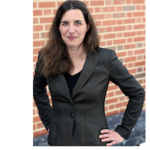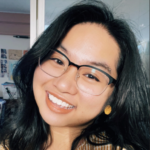Session Description
Access to wellness resources has been critical for students during the COVID-19 era. According to CDC’s new data in 2021 more than a third (37%) of high school students reported they experienced poor mental health during the COVID-19 pandemic, and 44% reported they persistently felt sad or hopeless. As such, a number of schools in the U.S. and globally have forged virtual wellness centers for students with a variety of supportive services. Virtual Wellness models range in delivery from mental health supports, suicide prevention, social emotional learning, training, calming apps, sharing sounds and music, and other creative approaches to helping. There has been scant research on this virtual implementation and little or no evaluation systems or frameworks. This presentation seeks to explore models of virtual wellness centers to share, the existing literature virtual center’s efficacy and discussion around evaluative outcomes. Zenone et. Al (2021) notes that when implementing virtual services entities must acknowledge user experiences when moving to a virtual environment; this reality will also be discussed. Through this presentation, the opportunity exists for educators to understand these virtual online wellness resources to support students for potential referral and student flourishing.
Presenter(s)
Heather Zeng
ASU
Discovery Bay, CA, USA
Dr. Barbara Cooper
Clinical Coordinator, ASU
Jonesboro, AK, USA

 Tracy Crawford
Tracy Crawford Jennifer Romano
Jennifer Romano Stefanie Panke
Stefanie Panke Samantha Nezzer
Samantha Nezzer Naomi Grace Lau
Naomi Grace Lau Kyle Newby
Kyle Newby Melissa Lum
Melissa Lum Hailey Hemmerling
Hailey Hemmerling Ronald Deese
Ronald Deese Sara Brinkley
Sara Brinkley